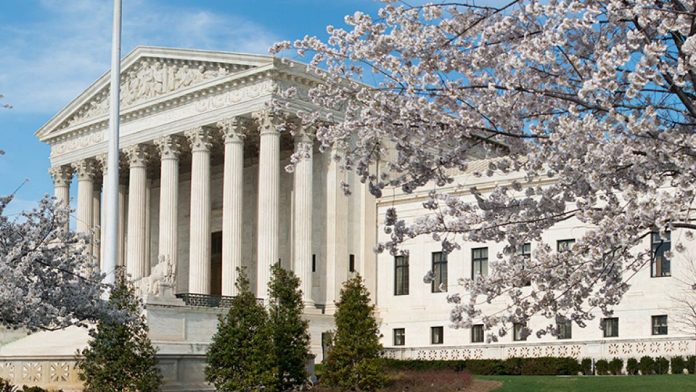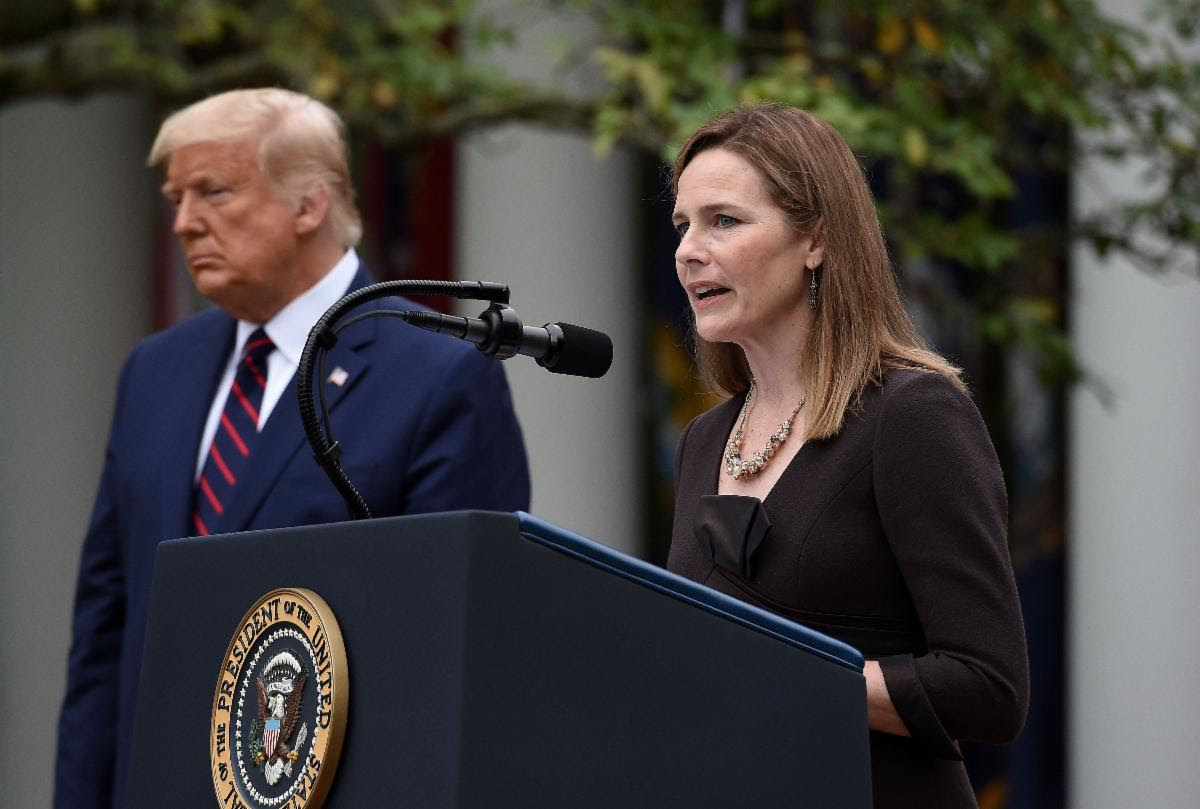
The Supreme Court of the United States has passed on major firearms cases, to the great disappointment of firearms owners and 2A advocates. Their lack of comment on the New York transportation restrictions, a flagrant violation of the right of their citizenry, showed a the court to be quiet literally ‘gun shy’. Since NY hurriedly changed the law the SCOTUS was given an easy out as to ‘not make waves’ in the space for firearms law.
We’ve seen hesitancy time and time again from the court to take up a case that could topple or cement major items of contention like magazine bans, assault weapon bans, and shall issue concealed carry.
So how would Barrett potentially change the mix? SCOTUS is nominally “conservative” at this time with a theoretical 5-4. However the Nine Justices are not monolithic thought blocks and have been known to vote ‘opposite’ depending upon the specific legal issue. Within the realm of the Second Amendment, only four Justices were reliably individualist (vs state) enough in their legal interpretations to make securing 2A rights back in locales that have taken them a possibility… and as you know it takes five.
From here I’ll let the MCRGO sum it up:
On Saturday, President Trump nominated Amy Coney Barrett to fill the seat on the United States Supreme Court vacated upon the death of Ruth Bader Ginsburg. Barrett presently serves as a Judge for the U.S. Court of Appeals for the Seventh Circuit. With Barrett’s confirmation by the U.S. Senate likely in the near future, many responsible gun owners are wondering how this new justice will impact them.
Judge Barrett applies the methodology of the late eminent Justice Antonin Scalia, for whom she clerked after graduating first in her class from Notre Dame Law School. Consistent with the methodology employed by the late Scalia, her mentor, Barrett interprets the Constitution in strict accordance with its original meaning. Barrett is a firm Constitutional originalist and textualist and she has already demonstrated that in a Second Amendment case.
In Kanter v. Barr, Barrett dissented from the Seventh Circuit Court’s ruling upholding the law prohibiting convicted felons from possessing firearms. The plaintiffs had been convicted of mail fraud. The majority upheld the felony dispossession statutes as “substantially related to an important government interest in preventing gun violence.” In her dissent, Barrett argued that while the government has a legitimate interest in denying gun possession to felons convicted of violent crimes, there is no evidence that denying guns to non-violent felons promotes this interest, and argued that the law violated the Second Amendment.
The Supreme Court has now twice ruled, by narrow 5-4 majorities, that there is an individual right to self-defense. Democrats, however, steadfastly promise to overturn those decisions. They claim the Second Amendment only guarantees the government the right to own guns. The Supreme Court considered ten Second Amendment cases this year but ultimately declined to hear any of them. Four conservative justices support defending the individual right to self-defense but they likely feared that Chief Justice John Roberts would side with the liberal justices and declined to hear the cases. It has been a decade since the Supreme Court has heard any Second Amendment cases. During this period, lower courts controlled by liberals have approved even the most draconian state gun control regulations.
The Second Amendment is hanging in the balance. Even if Biden were to get elected on November 3 and enacts his promised restrictions on self-defense rights, Amy Coney Barrett’s expected Senate confirmation will create a solid court majority to rule them unconstitutional based on District of Columbia v. Heller an McDonald v. City of Chicago

In short, Amy Barrett looks good as a 2A Justice.
In truth, she looks like a solid Justice all around. Most of the attacks against her character seem to be shallow and personal in nature, or simply a way to attack the President, but this is a favored and easy political tactic. Criticism centers on her personal beliefs and seem to dismiss her actual job, being a judge. This has led to some surprising support from ideologically opposed individuals who recognize that a differing opinion does not make a bad Justice. In a time where nobody seems reasonable that is pleasant to see.
Obviously a Justice selection is a political statement. It is an obvious political weapon and it was one the President seems to have used intelligently, selecting a solid female judge (which deflects some of the typical liberal criticisms), but that plays very strongly to his base during a hostile, stressful, and atypical election season. Anyone Trump picked was going to be attacked by the opposition to try and help Biden’s odds. The two tactics are to either motivate their base to vote, because Trump = Bad and Trump’s Choices = Bad, or to try and bring swing voters into the Democrat camp by attacking the SCOTUS choice as a right-wing revolutionary extremist of some terrifying caliber.
It seems they’re trying both.
There may have been a time and place to not nominate a replacement for Justice Ruth Bader Ginsburg, but in the current political climate Trump not doing so would have been of no benefit. It would have been a fruitless gesture to political groups who have already hoisted the ‘Orange Man Bad!’ banner.
The President is so vilified by the opposition that him giving the choice of Justice up would never be seen as a gracious enough move that brings moderate voters, the nation is too polarized and the parties are not amiable. Trump does not enjoy that relationship with the Democrats. He is generally portrayed as somewhere between Not-quite-SatanHitler and definitely-worse-than-MechaHitlerSatan.
Trump’s safest move was exactly what he did, bring forth a nomination that is foundationally sound for many moderates, and that plays to his base and does not betray their trust in him to bring the nomination. He was going to be criticized regardless so being criticized in the manner that makes his critics look the least credible, especially to political segments who matter for him, is the correct strategic decision.



